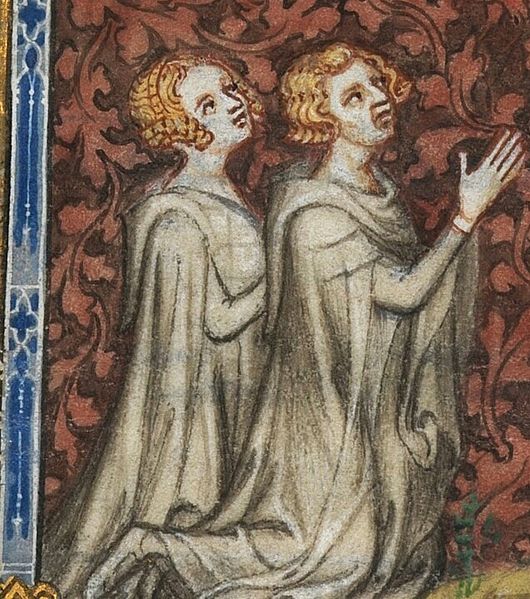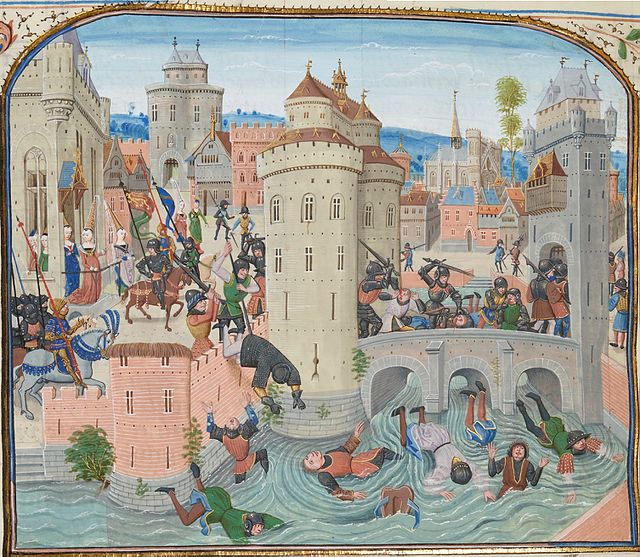John II, called John the Good, was King of France from 1350 until his death in 1364. When he came to power, France faced several disasters: the Black Death, which killed nearly one-third to one-half of its population; popular revolts known as Jacqueries; free companies of routiers who plundered the country; and English aggression that resulted in catastrophic military losses, including the Battle of Poitiers of 1356, in which John was captured.
Portrait [fr] on wood panel around 1350, Louvre Museum
John and his first wife Bonne
A denier d'or aux fleurs de lys from John's reign (1351)
John being crowned King of France with his second wife Joan
The Jacquerie was a popular revolt by peasants that took place in northern France in the early summer of 1358 during the Hundred Years' War. The revolt was centred in the valley of the Oise north of Paris and was suppressed after over two months of violence. This rebellion became known as "the Jacquerie" because the nobles derided peasants as "Jacques" or "Jacques Bonhomme" for their padded surplice, called a "jacque". The aristocratic chronicler Jean Froissart and his source, the chronicle of Jean le Bel, referred to the leader of the revolt as Jacque Bonhomme, though in fact the Jacquerie 'great captain' was named Guillaume Cale. The word jacquerie became a synonym of peasant uprisings in general in both English and French.
Prisoners in an illuminated manuscript by Jean Froissart
Defeat of the Jacquerie in Meaux on 9 June 1358

![Portrait [fr] on wood panel around 1350, Louvre Museum](https://upload.wikimedia.org/wikipedia/commons/thumb/1/1d/JeanIIdFrance.jpg/366px-JeanIIdFrance.jpg)




